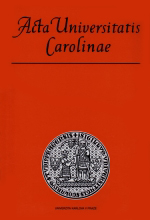Preferenční hlasování ve volbách do Poslanecké sněmovny ČR
Preferential Voting in the Elections to the Chamber of Deputies of the CR
Author(s): Jan KudrnaSubject(s): Law, Constitution, Jurisprudence
Published by: Univerzita Karlova v Praze, Nakladatelství Karolinum
Keywords: Elections; Chamber of Deputies; Czech Republic; proportional electoral system; preferential votes; categorical electoral ballots
Summary/Abstract: Pursuant to the Constitution of the Czech Republic, the elections to the Chamber of Deputies are organised on the basis of the electoral system of proportional representation. There are a number of modifications of this electoral system. One of variables shaping the form of a specific proportional system are the so-called preferential votes. To a greater or lesser extent, they make it possible to express voter’s personal preference and to introduce elements of some sort of personal vote in a system based on selecting electoral ballots made up by a political party. Rules which at present govern using preferential votes in the Czech Republic are so strict that they question the effectiveness and purpose of the existence of preferential votes. On the basis of data gathered from last two elections to the Chamber of Deputies, the paper demonstrates that voters use only between one sixth and one fifth of preferential votes which they have at their disposal. However, due to strict applicable rules only about one quarter of this fraction are actually counted in. Therefore, totally, approximately about three quarters of preferential votes cast fall through and do not influence the outcome of the elections. The reason for this situation should especially be seen in the excessively high number of preferential votes which a candidate must obtain if the preferential votes are to be counted in. In last two elections, the threshold was 7% of all votes cast for an electoral party for which a particular person ran in the elections. Analyses of previous electoral statistics indicate that only if the required fraction is reduced down to 3%, it would result in nearly half of all preferential votes cast being taken into account. The current legal situation therefore raises serious doubts about its very purpose. On the one hand, it introduces the possibility of preferential votes, on the other hand, it prescribes so restrictive conditions that preferential votes have no real impact on the outcome of the elections. There are two possibilities of how to deal with the situation in the future. Preferential votes can be completely abolished. The real position of voters would not in fact be changed and the legal regulation would better reflect the actual situation. Also, some time could be saved in counting electoral results. The second option is to considerably relax the mentioned restrictive elements in the legal regulation, i.e. to reduce the necessary fraction out of all votes cast for an electoral ballot down to maximally 1–2%. The author prefers the second mentioned option, as a means of strengthening the influence of voters on the electoral result and, to some extent, also on the personal selection of candidates offered by political parties.
Journal: Acta Universitatis Carolinae Iuridica
- Issue Year: 56/2010
- Issue No: 2
- Page Range: 21-35
- Page Count: 15
- Language: Czech

